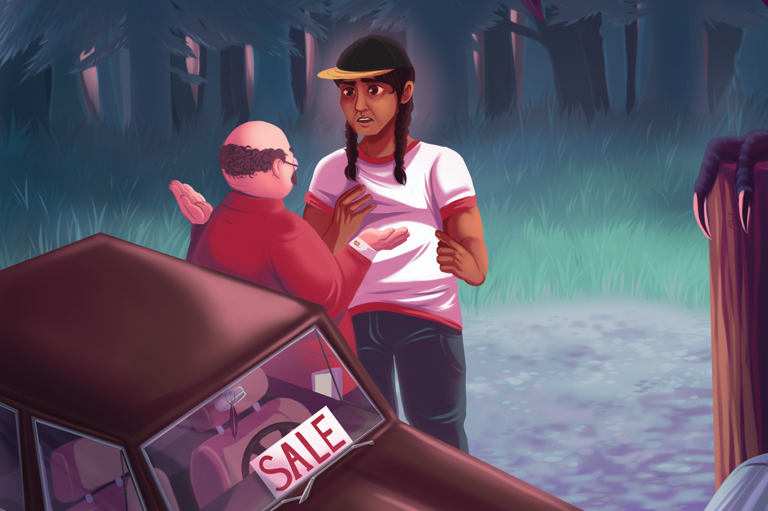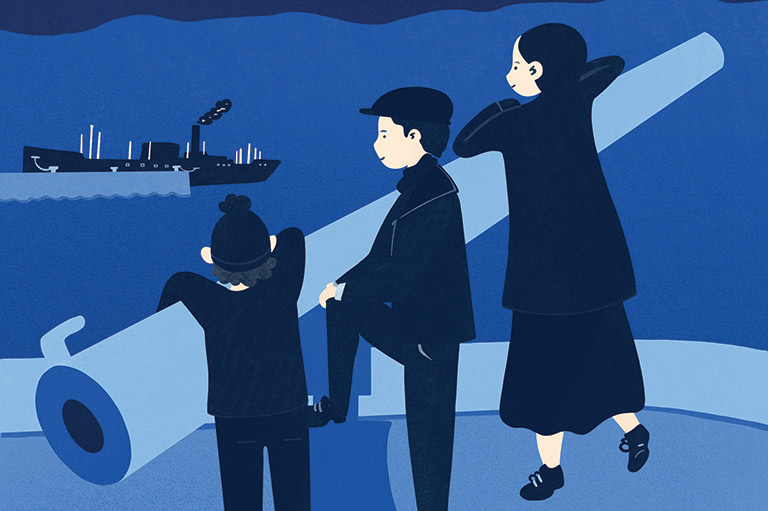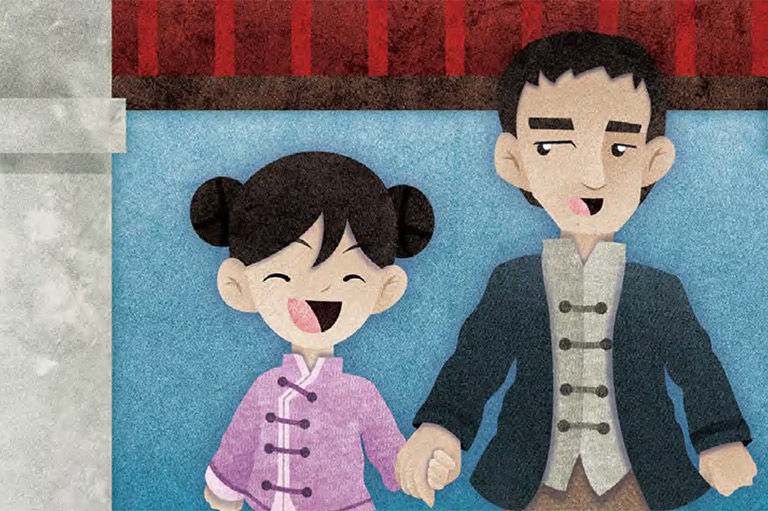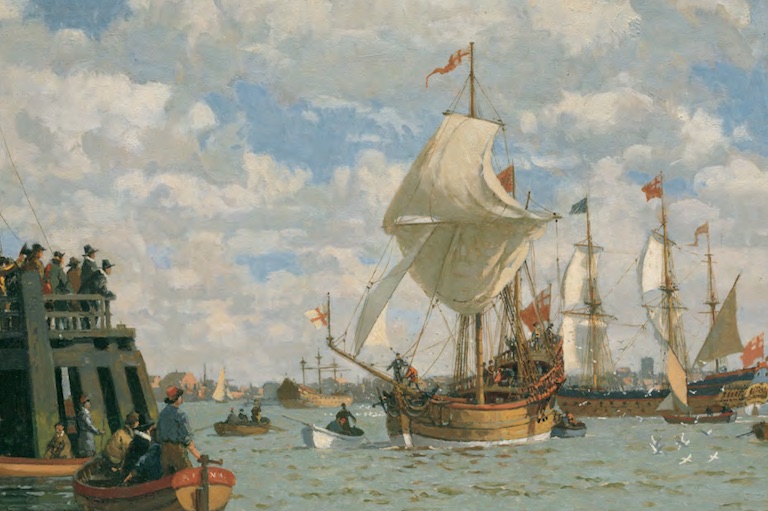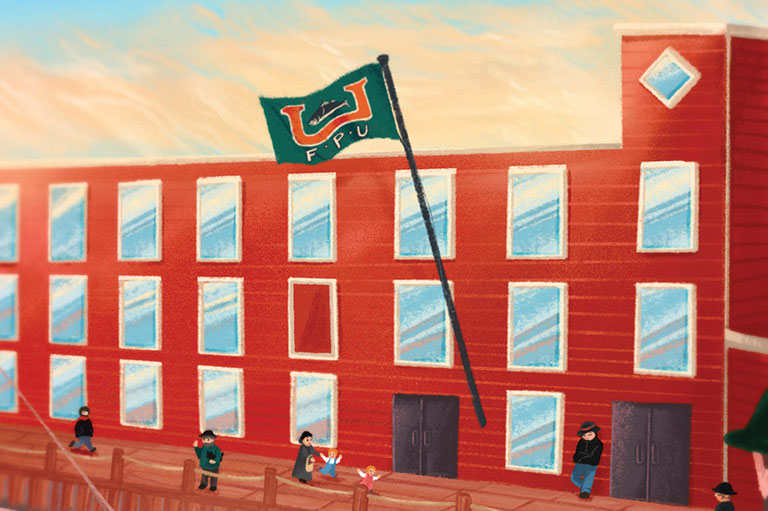An Inconvenient Newspaper
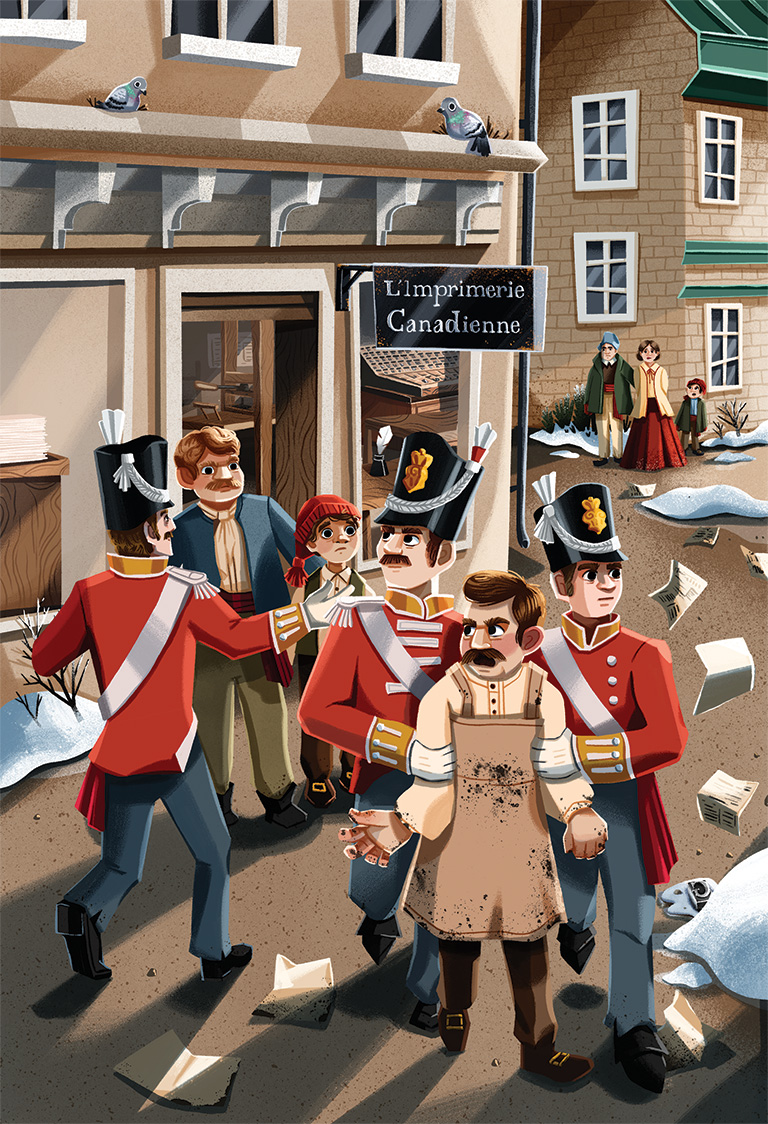
March 17, 1810, Quebec City
Gabriel and his dad are enjoying the mild March afternoon while wandering among the old stone and brick buildings of the St. Roch neighbourhood.
“I’m telling you, my boy, there’s so much work at the shipyard that if you wanted to, you could leave school and come work with me.”
“That’s very kind, but I’d like to stay in school and learn new things. I hope that’s okay with you,” Gabriel replies.
His father laughs, snatches his son’s tuque and ruffles his hair. They wrestle playfully as they walk.
But when they turn on St. François Street, they stop. A group of British soldiers is entering a building just down the street.
Voices shout in English. Another responds in French. As they near the building Gabriel sees that it’s a print shop. A sign on the front announces “L’Imprimerie canadienne.” A soldier bursts out of the building, his arms full of papers. The wind sends many of them wafting down the street.
“Charles must be having trouble,” Gabriel’s father mutters to himself. Gabriel sees his dad clenching his fists and edges closer, suddenly anxious.
“Who?”
“Charles Lefrançois, the owner of the printing house.” As if to confirm his fears, two soldiers emerge from the building, each gripping one arm of a man with ink-stained fingers who is wearing a leather apron. As Gabriel’s father tries to speak to him, a third soldier blocks his path.
“What are you doing with him? You can’t just arrest him. He’s got rights!” Gabriel’s father blurts out. The soldier’s mouth puckers, like he’s just bitten a lemon, but he answers, his French weighed down by his strong English accent.
“We’re acting on orders from the Governor, Sir James Craig. If you disagree, you can join Monsieur Lefrançois in jail, for all I care.”
The threat quiets Gabriel’s father, but the soldier’s sneering attitude makes the boy feel like he might explode. It reminds him of all the evenings when his parents, thinking he was asleep, talked about their humiliations at the hands of the British.
He still remembers his mother crying as she described the merchant who refused to serve her because she was speaking French. The man had chased her out of his shop in front of everybody.
Gabriel and his father sit in grim silence as they watch the soldiers take everything out of the printer’s shop, put it all in a wagon and leave, joking and laughing the whole time.
Gabriel spots something shiny amid the melting snow. The soldiers had dropped a block letter from the printer’s tools, a G. He puts it in his pocket, where he can still feel the cold metal.
“Why did they arrest M. Lefrançois? And what are they going to do with his tools?” he asks.
“That blasted governor doesn’t like the fact that Charles is printing a newspaper for us — for French Canadians,” his father answers.
“I don’t understand!” Gabriel’s father pats him gently on the shoulder. “Let’s head back. I want us to be more comfortable while I explain it all to you.”
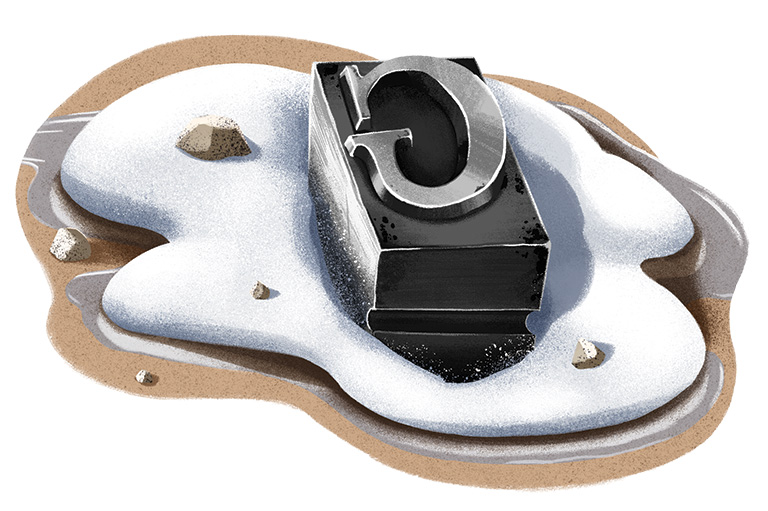
Back at home, Gabriel and his dad sit at the kitchen table. “About six years ago, our representatives for Lower Canada, both French and English, started a political party, the Parti Canadien. They wanted to make the government better — fairer. Soon after, the party leader, Pierre-Stanislas Bédard, founded a newspaper. He wanted Le Canadien to stand up for French Canadians and oppose the Quebec Mercury, the newspaper of the wealthy British merchants. Do you understand?”
Gabriel nods, even though he’s still a little confused. At 10 years old, he isn’t really interested in politics, unlike his father.
“Charles Lefrançois is a friend I met at a public meeting a while back. Three years ago, he began to print the newspaper.”
This time, Gabriel understands what his father means. “So that’s why Governor Craig had him arrested, to stop him from printing Le Canadien? But why? It’s just a newspaper.”
“Because the newspaper, like the Parti Canadien, wants a government that will represent French Canadians, not just the British. It had stories about how the British keep our people out of the government and block them from good jobs. Governor Craig sides with the merchants, and he doesn’t like being opposed by a newspaper, particularly a French one.”
Gabriel’s head is spinning. It’s too much information at once.
A few days later, Gabriel’s dad comes home, a wrinkled newspaper clutched in one hand. He drops heavily into a chair and signals Gabriel to join him at the table. Worried that his father has lost his job, the boy works up the courage to ask a question, his voice shaking.
“What’s happening, papa?”
“That coward Craig has struck again! Yesterday he arrested and jailed Pierre-Stanislas Bédard, François Blanchet and Jean-Thomas Taschereau, the owners of Le Canadien. They are being accused of treasonous acts — of betraying the government. This is outrageous!”
Gabriel tries to reassure his father. “I’m sure they will be freed soon. Even the governor must abide by the law.” But in his heart, he knows that, for French Canadians, the English law is sometimes unfair.
His dad smiles fiercely and bangs his fist on the table. “They can shut down our newspaper, but they won’t silence us!”
Gabriel is reassured by his dad’s confidence. When he grows up, he decides, he wants to get into politics, like his father before him. And maybe he’ll open his own printing shop, too.
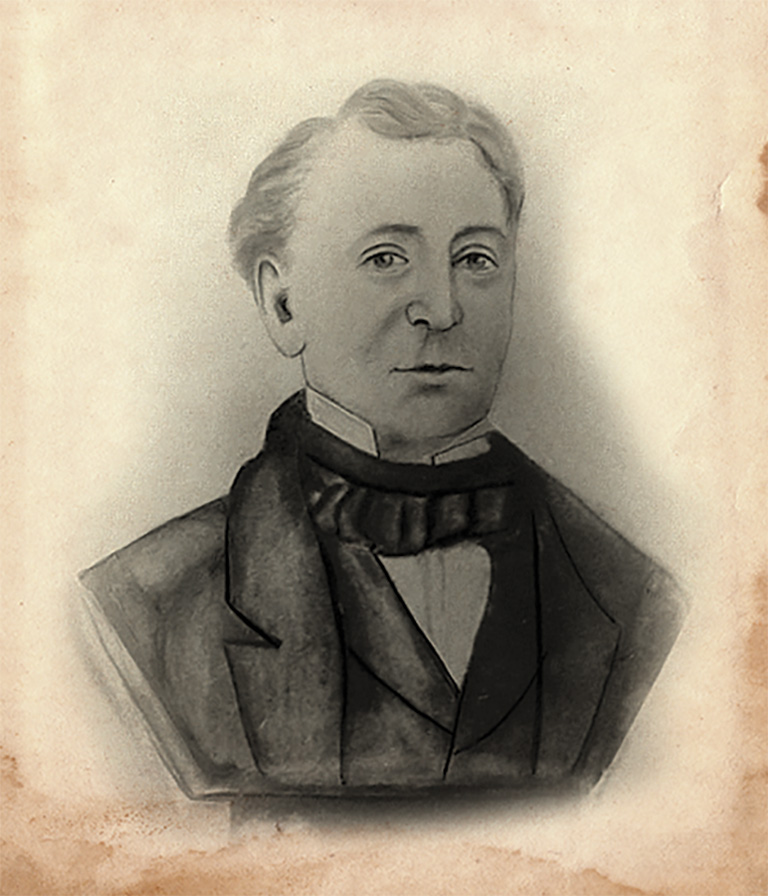
We invented Gabriel and his family, but the other men are all real.
Pierre- Stanislas Bédard was part of the group that started Le Canadien in 1806. They wanted to educate French Canadians about their rights, even under British rule.
Bédard and others in the Parti Canadien fought to protect those rights, often opposing the British governor, Sir James Craig.
In March 1810, angered by the newspaper’s outspoken support for a government that represented French-speaking people, Craig sent in the soldiers. They arrested and jailed Le Canadien’s editors and seized its printing presses.
The paper did start up again, and continued publishing until 1893.
— Dave Belcher
Themes associated with this article
Advertisement
You might also like...
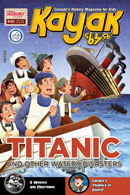
Canada’s History Archive features both English and French versions of Kayak: Canada’s History Magazine for Kids.
Kayak: Canada’s History Magazine for Kids — 3 digital issues per year for as low as $13.99. Tariff-exempt!


